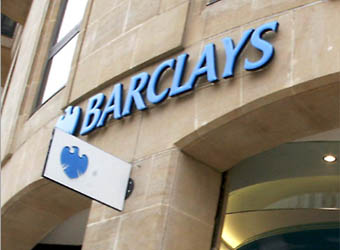Barclays recorded worse-than-expected net profits for 2016, but posted a surprise uptick in its capital buffers as the U.K.-based bank nears the end of a major restructuring programme.
Its attributable profit came in at £1.62 billion ($2.02 billion) on Thursday, which was better than the loss reported for 2015, but below the £1.97 billion expected by analysts in a poll conducted by Dow Jones.
However, statutory group profit before tax for 2016 came in at £3.2 billion ($3.9 billion), beating analyst expectations and almost trebling the £1.15 billion seen in 2015 . This came as the lender pledged to close its non-core unit six months ahead of schedule and announced it had agreed separation terms with local management in Africa. Shares of the bank climbed around 2 percent in early deals on Thursday morning.
Ahead of the bank’s closure of its non-core unit in June this year, Jes Staley, the group chief executive officer at Barclays, told CNBC Thursday, “It is great to be months away from being the stand-up bank that we want to be.”
Barclays reported an unexpected uptick in its core capital ratio on Thursday as the key measure of financial strength increased to 12.4 percent in 2016, beating a Reuters poll of analysts’ forecasts for an 11.8 percent rise. The bank attributed the increase in capital to the approaching deadline of its major restructuring, which sees its non-core division closing on June 30.
Chief Executive Jes Staley argued the full-year earnings reflected the lender’s progress as it offloads its unwanted assets, such as its African business, and instead prioritizes a more “transatlantic” strategy which focuses on the U.S. and Britain.
“Today, clearly London is the financial center for Europe and in my view when all is said and done at the end of Brexit, London will remain the financial center for Europe,” Staley told CNBC.
“We think we have contingencies that can allow us to deal with however the negotiations come on, but clearly the uncertainty is something that both the governments from the U.K. and Europe should seek to diminish,” he added.
The Barclays chief executive stressed that it has business arms throughout the European continent and so the lender should be able to manage any situation that would result in Britain being unable to secure single market access post-Brexit. The single market is the EU’s treasured association of countries which trade with each other without restrictions or tariffs.
U.K. Prime Minister Theresa May has pledged to activate formal negotiation talks before the beginning of April.
Source: CNBC


